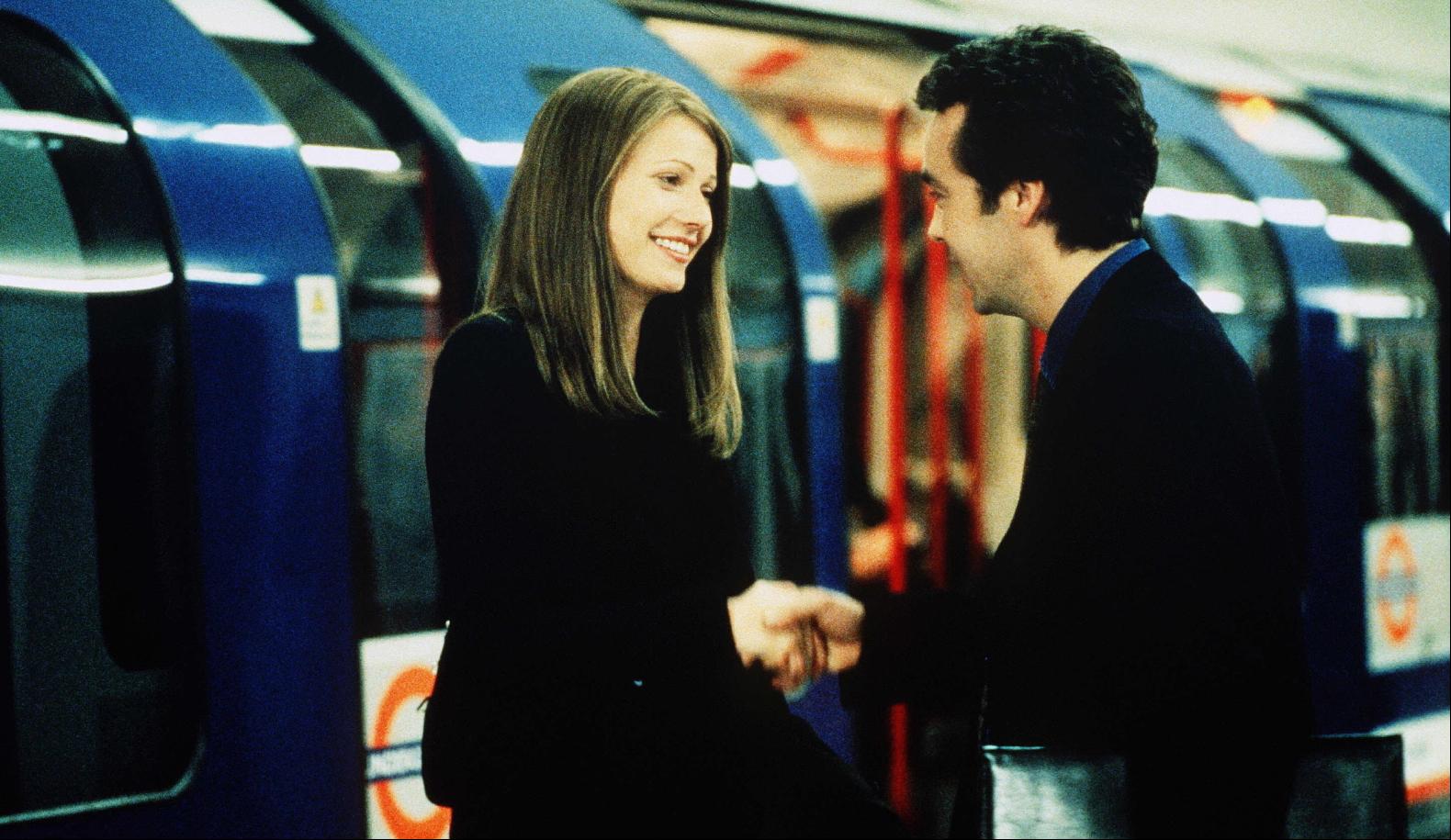By Zsófia Paulikovics
Before I moved to London at age 20, I’d only been to the city twice: once when I was 16, with my mother and brother, and once at 18, visiting a friend who had moved here for university. Both of these visits were characterised by touristic naïveté; staying in a two-star Chelsea B&B, eating burgers in Tiger Tiger on Haymarket, wandering from the friend’s student accommodation by Victoria station to a club near Oxford Circus.
These trips did little to further my understanding of London, beyond a busy place with an impenetrable history. Instead, my knowledge was gleaned from watching cheerful Blair-era films and TV shows: Love Actually, Notting Hill, Coupling, and, most formatively, 1998’s Sliding Doors.
In the movie, Helen, played by Gwyneth Paltrow, is fired from her job at a PR firm for borrowing a case of vodka, and, rushing for the District line on her way home, her future splits into two possible timelines. In one, she manages to wedge an arm between the closing doors, meets a charming stranger, James (played by John Hannah), and arrives home to catch her failing novelist boyfriend in bed with another woman. She leaves him, sets up her own PR company with a small business loan and embarks on a romance with James. In the other divergent chronology, she does not catch the Tube and is mugged on her way home, delaying her discovery of her boyfriend’s infidelity until much later; she blindly supports him in the meanwhile by working two jobs as a waitress and sandwich delivery girl.
Unlike say, Mary Poppins or River Cottage, Sliding Doors cannot be described as “quintessentially British”. Instead, the film simply posits that this is the reality of London life — how one, as the soundtrack to the film’s opening sequence suggests, might “have fun, living in the city”.
I don’t just covet the characters’ flats, with their dishevelled, straight-out-of-a-Terence-Conran-book decor — hardwood floors, floor-to-ceiling bookshelves, Edwardian cane sofas, stained glass windows, primary coloured Le Creusets. I also yearn for their accompanying lives: drinking swing-top bottles of Grolsch at Bertorelli’s on Charlotte Street while a Beatles tribute band plays or spending Saturdays in a Richmond pub with your beau’s rowing team.
Of course, there are subtle class markers: James’s distinguished oarsmanship and family enterprise, his soignée elderly mother and her upper-crust accent, Helen’s reference to her grandfather who helped build the Albert Bridge. The characters’ lives and jobs are all underpinned by an almost incidental Englishness and good taste.
But mostly Sliding Doors unfolds in breezy ignorance. The film does not concern itself with self-conscious representations of class differences among Londoners, which have become an almost inevitable part of similar films in the past decade. This could feel like an oversight, but to me it is actually a more accurate description of city living: the truth is that we all move to the capital with aspirations of access, of understanding the city’s secret codes, a sense of effortless belonging.
Photography: Shutterstock; Alamy
Read More: World News | Entertainment News | Celeb News
FT
